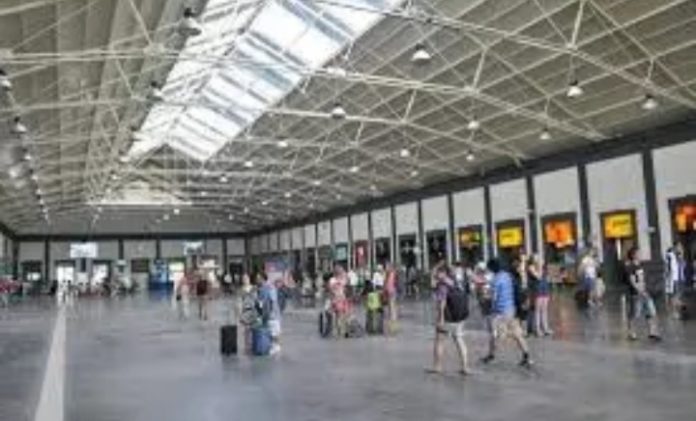By Andrew Atkinson
Benijofar based David Winder was left with disappointment after travelling 1st Class to Alicante from Barcelona with Renfe – at a cost of €74.75.
“I had the pleasure, if you could call it that, to travel on the train from Barcelona to Alicante which took four and half hours,” David told The Leader.
“At the time of booking I was told that there were three fares. One at €22; 2nd class at €42 and 1st class €74.75.

“I decided to go 1st class, because as one knows First Class means what it says,” he said.
“With a long journey late into the day it was the best way to travel, despite it being dark and one could not experience the scenery,” said David.
“How wrong can one be? After over two hours, and others being served with what looked like a very basic meal, I was thinking I must be next. But nothing was forthcoming. “When I enquired with the Steward I was told that a meal had to be ordered, prior to departure.
“So I asked ‘could order something now’? No was the reply, as they have no facilities and my ticket was a Confort ticket, as per printed on ticket,” said David.
“The seats designated were to my mind, not my version of 1st Class, so I had a look at seats for €22, when getting off the train – they were exactly the same, but in a different set-up.
“In my opinion I have been ‘conned’ out of over €50 by Renfe, and been ripped off,” added David.
Spanish national operator Renfe announced a new flexible pricing structure for high-speed and long-distance services last summer.
Under plans, Renfe abolished existing pricing structures and classes, in favour of a three-tier menu of options.
The new pricing structure applies to all of Renfe’s high-speed and long-distance trains, comprising the Ave, Alvia, Euromed and Intercity brands. The new low-cost Avlo service, launched in June, is exempt. The revision came amid French National Railways (SNCF) prepared to launch its Ouigo low-cost service in Spain. Renfe’s other competitor, Ilsa, is set to enter the market in the second half of 2022.
Meanwhile four new drivers hired by Renfe should allow commuters to see the Cercanías local service return to almost normal since cuts in November impacted the frequencies of trains, particularly on the Costa del Sol’s C1 line.
From February 1st it is expected that 14 trains out of the 32 on the C1 line that were cancelled will resume normal service with a 20-minute wait between each train, as opposed to the 40-minute wait commuters have endured.
“From 1 February, seven services have been incorporated in each direction on C1 line and with this 85 per cent of services will be restored,” said Pedro Fernández, the national government’s delegate in Andalucía, on 25 January.
In a recent interview with SUR, José Ángel Ferrero, manager of Renfe’s public service in Andalucía, said hiring new drivers and staff was essential.
The Cercanías service in Malaga lost a total of 34 trains per day in November 2021 and could only operate at 75 per cent of its usual timetable.
Faced with the impossibility of accelerating the training processes for the train drivers that would be necessary to maintain the 136 daily trains on the C-1 and C-2 lines in Malaga, Renfe chose to cancel 32 departures between Malaga and Fuengirola, 16 in each direction, and two on the Álora line, one in each direction. Currently, 76 trains circulate on the C1 line and 26 on the C-2.





